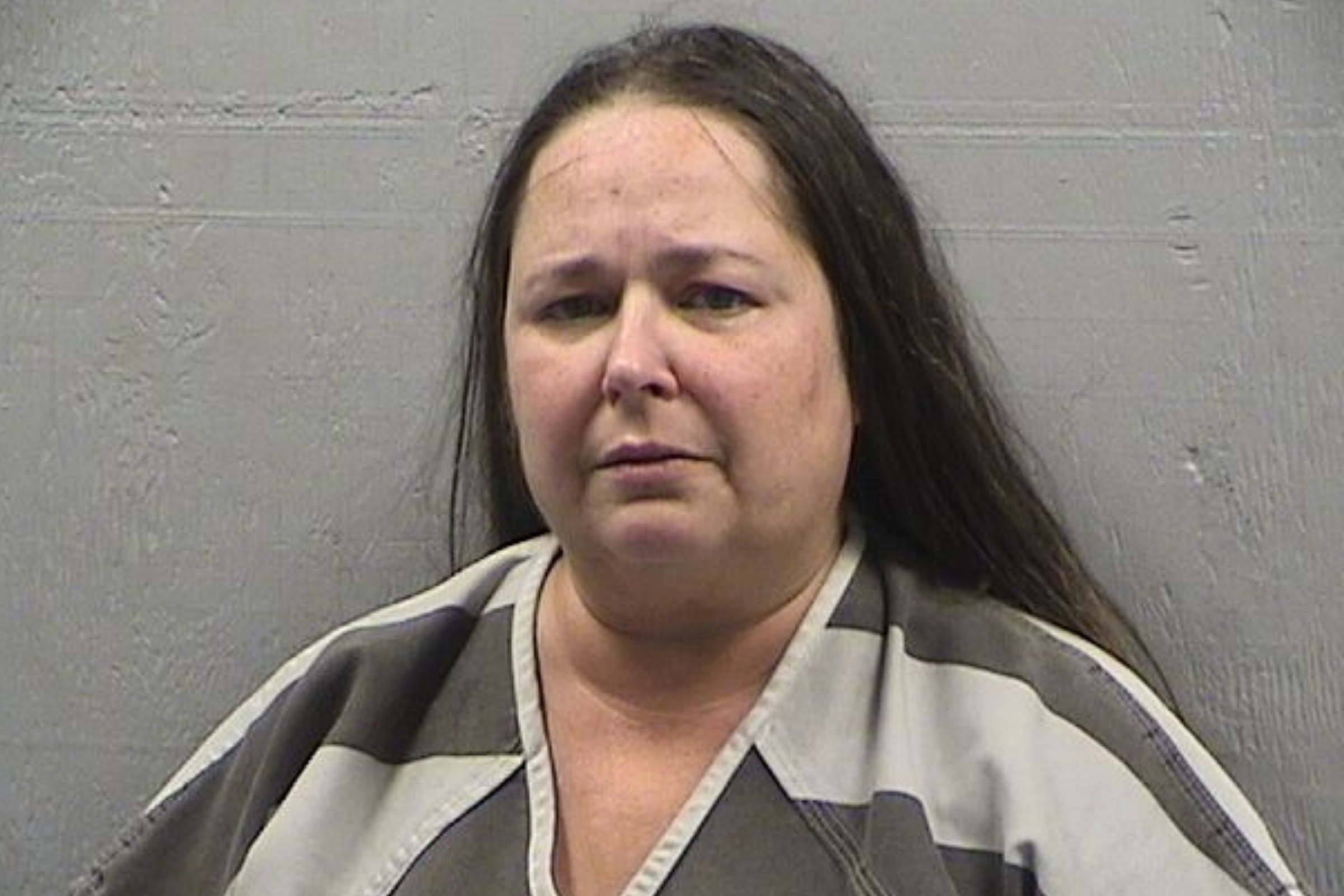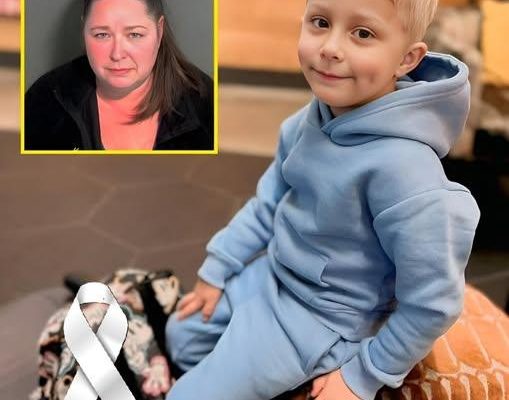Grandmother’s Quick Response Helps Save Five-Year-Old in Brookhaven Village
For residents of Brookhaven Village, a normally quiet suburban community, Tuesday afternoon brought an unexpected moment of concern. Emergency vehicles moved quickly down Oak Street after a call reported a young child in distress. Neighbors stepped outside, unsure of what was happening, as fire and medical personnel arrived at a small single-story home near the end of the block.
Early speculation, fueled by the sudden appearance of flashing lights, led some community members to fear a more serious domestic incident. However, officials later clarified that the situation was strictly medical in nature and involved a grandmother taking urgent action to help her five-year-old grandson during a choking episode.

According to statements from family members and the local fire department, the incident began shortly after 3 p.m. in the home of the Parker family. Five-year-old Elliot Parker had been spending the afternoon indoors, playing with a collection of small building toys often used to assemble miniature structures. At some point, a loose piece from the set came apart. While investigators do not know exactly how the object entered his mouth, they confirmed that Elliot began choking shortly thereafter.
His grandmother, seventy-one-year-old Marian Parker, was the only adult present in the room at the time. She later told officials that she immediately sensed something was wrong when she heard Elliot coughing and struggling to breathe. Because he was unable to communicate clearly, she quickly assessed the situation and realized that his airway was likely obstructed.

Without hesitation, Marian called emergency services. Officials from the city’s emergency communications center confirmed receiving the call at 3:07 p.m. The dispatcher walked Marian through basic instructions while dispatching both medical and fire personnel to the home. During the call, Marian used first-aid techniques she had learned years earlier during a workplace safety training. Although she had not practiced such skills in a long time, she said she relied on memory and instinct.
By the time the first paramedic arrived—approximately four minutes after the call—the immediate risk had already decreased. First responders reported that the obstruction had come loose, and Elliot had begun breathing more easily. Paramedics provided initial care, monitored his oxygen levels, and prepared him for transport to a nearby hospital as a precaution.
Later in the evening, doctors confirmed that Elliot was stable and not expected to experience long-term complications. Family members said he was alert, responsive, and calm following the incident. Hospital staff conducted routine evaluations to ensure no secondary issues, such as airway irritation or swallowing difficulties, were present.
The Brookhaven Fire Department released a brief statement commending Marian’s actions. “Situations like this can escalate quickly, especially when small children are involved,” one EMT noted. “Early recognition and immediate response play a critical role. In this case, the caregiver took fast, appropriate action that helped prevent a more serious medical emergency.”
The statement also reiterated a common reminder from health professionals: choking is one of the most common medical emergencies involving young children, who may accidentally place small objects in their mouths while playing. Knowing how to respond—whether through basic back blows, abdominal thrusts for older children, or simply calling emergency services promptly—can make a meaningful difference.
In Oak Street’s close-knit environment, the afternoon response drew several neighbors outside. A few residents later expressed that the initial confusion came from not knowing what had sparked the medical call. With emergency vehicles parked across part of the street, some worried the situation might involve violence or household conflict—assumptions that were quickly dispelled once information became available.

“People were concerned because we saw multiple emergency units show up at once,” said one neighbor who witnessed the response. “Once we heard it was a medical emergency and that the child was okay, everyone felt relieved.”
Another resident described seeing Marian appear at the doorway alongside the paramedics. “You could tell she was shaken but focused,” he said. “It was clear she had been trying to help him from the beginning.”
Family members reported that although Marian was unsettled by the experience, she remained composed enough to follow instructions and support Elliot until help arrived. When asked about the attention she received afterward, she downplayed her role, telling officials that she simply acted as any caregiver would when a child is in trouble.
Child safety experts say her response reflects the importance of equipping caregivers with essential first-aid knowledge. According to the American Academy of Pediatrics and various emergency medical organizations, learning how to react in choking situations is a fundamental part of child supervision—particularly in households with small toys, food items, or objects that can be accidentally swallowed.
Training programs available through community centers, hospitals, and nonprofit groups often teach skills such as recognizing choking signs, performing age-appropriate first-aid techniques, and knowing when to seek emergency assistance. Even individuals without formal certification can benefit from reviewing publicly available instructional guides from reputable health organizations.
The Brookhaven Health Office said the incident serves as a useful reminder for families, especially with the holiday season approaching, when children often receive new toys and spend more time indoors. Officials recommended that caregivers conduct periodic checks of toys, examining them for loose components that could become choking hazards. They also encouraged families to keep emergency numbers easily accessible and to maintain a basic understanding of first-aid steps.
Local community groups echoed this sentiment. Several organizations in Brookhaven run periodic safety workshops for adults, covering topics such as fire preparedness, CPR, and choking response. Following news of the Parker family’s situation, one local training coordinator said they anticipate renewed interest in attending such sessions. “People rarely think about these skills until an emergency happens close to home,” the coordinator noted. “This incident fortunately ended with a positive outcome, and it may encourage others to prepare as well.”
As Elliot continues his recovery, the Parker family expressed gratitude to both Marian and the emergency teams who responded. They said the experience reminded them how quickly an everyday moment can turn into a medical situation requiring immediate attention.
Authorities emphasized that the incident was classified as an accidental medical emergency, and no further investigation is planned. There were no indications of neglect or unsafe conditions in the home. The official report noted that the toy involved met general safety standards but that a detachable piece had come loose, creating a hazard.
Brookhaven Village officials stated that emergency response times in the area remain strong, with most calls receiving on-scene assistance within approximately five minutes. They highlighted this incident as an example of effective coordination between dispatchers, first responders, and civilians.
By Wednesday morning, the atmosphere on Oak Street had returned to normal. Children played in front yards, neighbors walked dogs, and the Parker home showed no signs of the previous day’s commotion. Family members said they plan to review toy safety and household childproofing measures as a precaution, but they emphasized their relief and appreciation for the outcome.
For the community, the event served as a reminder of the value of preparedness and calm decision-making. While the sight of emergency vehicles can understandably generate concern, the Brookhaven incident demonstrated that quick, informed action—combined with efficient professional response—can significantly change the course of a medical emergency.
In the end, what brought residents outside that afternoon ultimately became a story of prevention and attentiveness rather than harm. Elliot’s safe recovery, officials said, stands as the most important outcome of the day, and his grandmother’s response played a central role in ensuring it.



